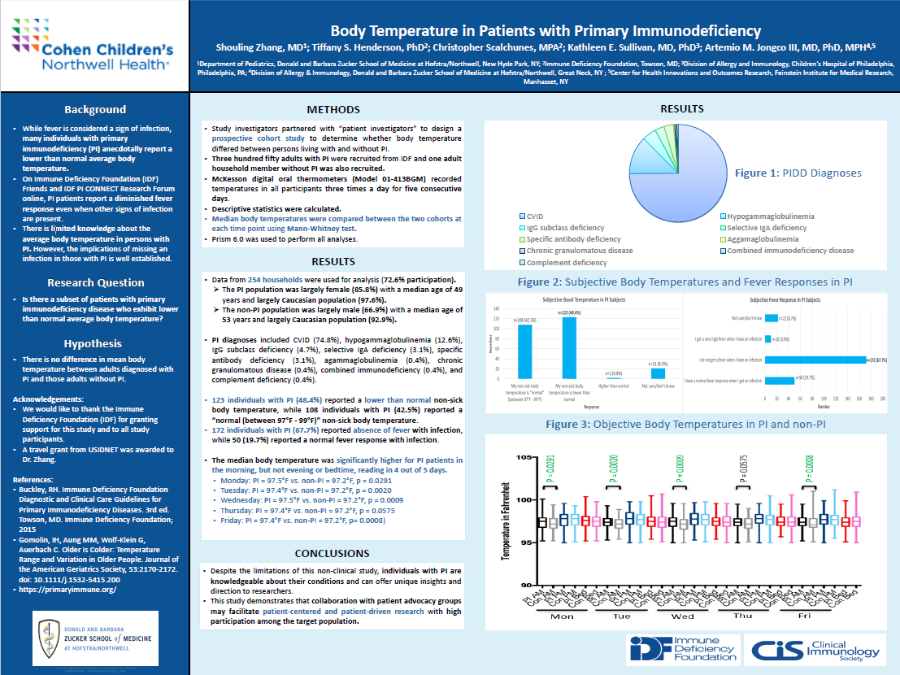
-
Understanding primary immunodeficiency (PI)

Understanding PI
The more you understand about primary immunodeficiency (PI), the better you can live with the disease or support others in your life with PI. Learn more about PI, including the various diagnoses and treatment options.
-
Living with PI
-
Addressing mental health
-
Explaining your diagnosis
- General care
- Get support
- For parents and guardians
-
Managing workplace issues
- Navigating insurance
-
Traveling safely

Living with PI
Living with primary immunodeficiency (PI) can be challenging, but you’re not alone—many people with PI lead full and active lives. With the right support and resources, you can, too.
-
Addressing mental health
-
Get involved

Get involved
Be a hero for those with PI. Change lives by promoting primary immunodeficiency (PI) awareness and taking action in your community through advocacy, donating, volunteering, or fundraising.
-
Advancing research and clinical care
-
Research Grant Program
-
Consulting immunologist
-
Diagnosing PI
-
Getting prior authorization
-
Clinician education
-
Survey research
-
Participating in clinical trials

Advancing research and clinical care
Whether you’re a clinician, researcher, or an individual with primary immunodeficiency (PI), IDF has resources to help you advance the field. Get details on surveys, grants, and clinical trials.
-
Research Grant Program
While fever is considered a sign of infection, many individuals PI anecdotally report a lower-than-normal average body temperature.
Study background
In 2018, the Immune Deficiency Foundation (IDF) conducted a non-clinical study of "Body Temperature in Patients with Primary Immunodeficiency," also referred to as "The Fever Study." The idea for this study arose from individuals with primary immunodeficiency (PI) who were a part of the IDF Friends online community, and the IDF PI CONNECT Research Forum. While fever is considered a sign of infection, on these websites, many patients with PI stated they had a diminished fever response when they were sick (i.e., they had temperatures lower than 101°F when they were experiencing an infection).
Misdiagnosing patients with PI who do not present the typical fever response can increase the likelihood of patients not receiving critical antibiotics needed to fight off an infection.
In response to that concern, IDF collaborated with Dr. Art Jongco and Dr. Kathleen Sullivan, and over 250 households were recruited to participate in the Fever Study.
Study methods
For this study, both an adult with PI and an adult without PI who lived in the same household had to participate. Both were asked to record their temperatures three times a day for five consecutive days (between March 26, 2018 and March 30, 2018). They were sent a thermometer and observation booklet to fill out. At the end of five days, the participating households mailed their booklets back to IDF and were later compensated for their participation. Data from the study was analyzed by Dr. Shouling Zhang.
Study results
Click the image below to see the poster created from the study results. The study was also published in the Journal of Participatory Medicine:
Zhang S, Henderson TS, Scalchunes C, Sullivan KE, Jongco III AM. Persons Living With Primary Immunodeficiency Act as Citizen Scientists and Launch Prospective Cohort Body Temperature Study. J Particip Med 2020;12(4):e22297 https://jopm.jmir.org/2020/4/e22297/.

Screen documentary
Host a private screening of Compromised: Life Without Immunity to experience the resilience, hope, and determination of the PI community. And know that your hosted event can be two people or 100+!
Watch the filmTopics
This page contains general medical and/or legal information that cannot be applied safely to any individual case. Medical and/or legal knowledge and practice can change rapidly. Therefore, this page should not be used as a substitute for professional medical and/or legal advice. Additionally, links to other resources and websites are shared for informational purposes only and should not be considered an endorsement by the Immune Deficiency Foundation.
Related resources
Sign up for updates from IDF
Receive news and helpful resources to your cell phone or inbox. You can change or cancel your subscription at any time.





The Immune Deficiency Foundation improves the diagnosis, treatment, and quality of life for every person affected by primary immunodeficiency.
We foster a community that is connected, engaged, and empowered through advocacy, education, and research.
Combined Charity Campaign | CFC# 66309




